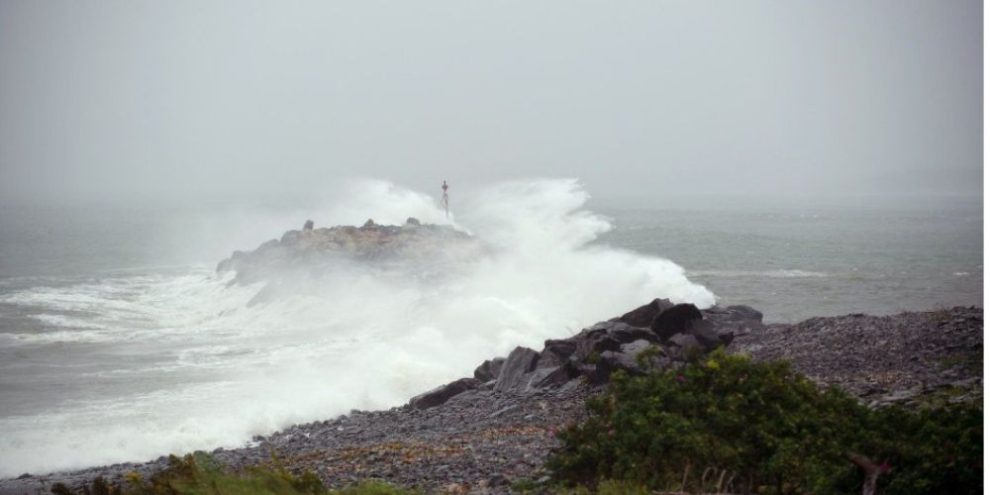
By Michael MacDonald in Halifax
Thousands remained without power Sunday as post-tropical storm Lee gradually moved out of the Maritimes, leaving a trail of downed trees and coastlines damaged by pounding surf.
By midday the storm had moved past Prince Edward Island and into the Gulf of St. Lawrence where it was to pass west of the Magdalen Islands and reach northern Newfoundland in the evening hours.
“Being such a large storm, some areas are going to feel the winds from this for a few hours to come … but certainly not as strong as it was when it approached the Maritimes so it will continue to weaken,” Bob Robichaud of the Canadian Hurricane Centre said Sunday.
As Lee continued to weaken, conditions in most areas to the south and east of the storm were expected to improve as the day progressed.
The town of Shelburne in southwestern Nova Scotia saw the full fury of the storm when it hit Saturday and sustained some flooding from a powerful storm surge in its harbour.
“There is no question we had pretty close to a direct hit,” said Andy Blackmer, commodore of the Shelburne Harbour Yacht Club. “Significant winds with a very high tide and storm surge on top of that flooded low lying areas and some town infrastructure was damaged.”
Blackmer said a sailboat on a private mooring broke free at one point and was later secured across the harbour by two members of the yacht club.
“Driving around town there are some branches down, but overall things look pretty reasonable except we’ve been out of power for over 24 hours,” he said.
Blackmer said the conditions improved during high tide in the evening, sparing the town any further damage from ocean waters.
“We were lucky that the timing of the winds and the tide were in our favour. It could have been a lot worse.”
As of 12:45 p.m. ADT, Nova Scotia Power was reporting outages affecting over 68,000 customers, while about 10,000 NB Power customers were without electricity and 144 Maritime Electric customers were in the dark in P.E.I.
Nova Scotia Power said it had about 800 people working in communities across the province to restore electricity. At the height of the storm on Saturday, it said about 277,000 customers were affected by powerful winds that caused trees to come down on power lines.
The private utility said western Nova Scotia and the Halifax area were hardest hit, along with Truro and New Glasgow in the province's northeast.
“We’ve been getting an even better look at the damage since daylight, and now everyone is focusing their efforts on making the necessary repairs and getting the power back on safely for customers as quickly as possible,” the utility’s storm lead Matt Drover said in a statement.
On New Brunswick’s Grand Manan Island, which saw upwards of 100 millimetres of rain, village Mayor Bonnie Morse said there had been no reports of major flooding.
“There were a few pools on the road, but nothing significant that warranted a road closure,” said Morse.
And although there were power outages at the height of the storm, Morse said NB-Power crews had quickly restored electricity to most homes and businesses in the area.
“Everybody is doing some cleanup today from trees and limbs that are down, but for the most part we survived it pretty good,” the mayor said.
Meanwhile, Robichaud said Lee held no surprises for forecasters.
“What we were predicting was a strong tropical or post-tropical storm and that’s exactly what we got,” he said. “We got winds of over 100 kilometres per hour, but just below hurricane strength.”
Robichaud added that the biggest challenge for forecasters was social media chatter in the week or so leading up to the storm. He said it was especially intense after Lee strengthened into a Category 5 hurricane at one point early last week.
“There was a lot of angst and build up to this way before we would typically start talking about a storm affecting our specific region," he said. “There were all kinds of stories about a massive storm surge going up the Bay of Fundy and issues with the isthmus there and that was never on the table.”
Banner image: THE CANADIAN PRESS/Bill Curry
This report by The Canadian Press was first published Sept. 17, 2023.





